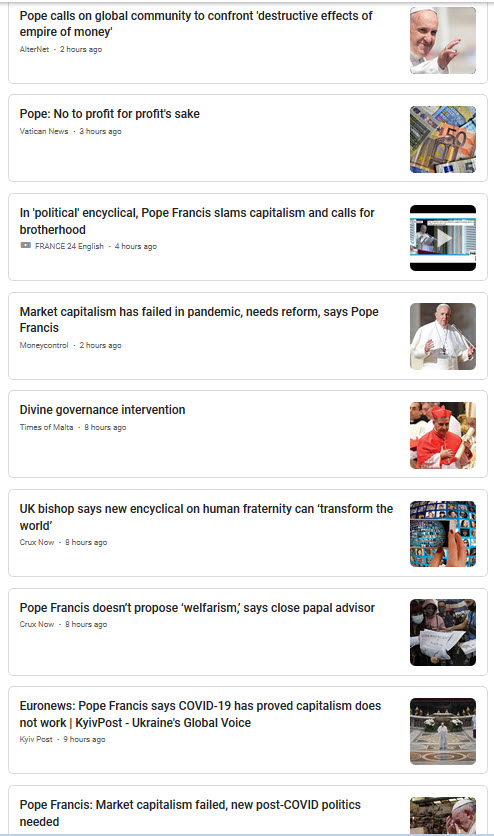Pope Francis, the influential leader of the Catholic Church, has once again captured global attention with his latest encyclical. Known for his progressive and inclusive approach to faith, this document delves into themes that resonate deeply with both believers and non-believers alike. As a spiritual guide and moral compass, Pope Francis continues to inspire through his writings, urging humanity towards greater love, understanding, and unity.
In this new encyclical, Pope Francis explores profound theological concepts while addressing contemporary societal issues. His message is not only relevant to Catholics but also offers insights applicable to people from diverse backgrounds and beliefs. By revisiting traditional teachings on love and devotion, the pope emphasizes the importance of reconnecting with one's inner self and fostering compassion in an increasingly fragmented world. This article aims to provide key insights and explore the broader implications of this significant papal document.
Exploring the Sacred Heart: A Journey Through Love
Dilexit nos, Pope Francis' fourth Encyclical, invites readers to reflect on the profound significance of the Sacred Heart of Jesus. The encyclical traces the rich tradition of thought surrounding the human and divine love embodied by Christ's heart. It serves as a reminder of the enduring power of love, encouraging individuals to embrace the values of tenderness, service, and missionary zeal.
This exploration of the Sacred Heart is more than a theological treatise; it is a call to action. Pope Francis urges believers to renew their devotion and rediscover the joy of serving others. By focusing on the heart of Jesus, the encyclical highlights the transformative potential of love in everyday life, inspiring individuals to live with greater purpose and intentionality.
The encyclical also addresses the risk of losing sight of these essential virtues amidst modern distractions. In a fast-paced world, it challenges readers to pause and consider what truly matters. Through this reflection, Pope Francis hopes to reignite a sense of fervour and commitment among the faithful, reminding them of the timeless message of love and compassion.
Encountering Universal Brotherhood: Fraternity in Action
While Dilexit nos centers on the Sacred Heart, its themes extend beyond individual spirituality to encompass social relationships. Pope Francis emphasizes the importance of fraternity and social friendship, advocating for a society where all individuals are treated with dignity and respect. This aspect of the encyclical draws parallels with his previous work, Fratelli Tutti, which explored similar themes of universal brotherhood.
The pope's message is clear: true peace and harmony can only be achieved when people come together in solidarity. He encourages dialogue and cooperation across cultural and religious boundaries, promoting a vision of unity that transcends divisions. By highlighting the interconnectedness of humanity, Pope Francis underscores the need for collective responsibility in addressing global challenges.
In practical terms, this means rejecting individualism and embracing a spirit of collaboration. The encyclical calls for actions that foster inclusivity and justice, urging individuals and communities to work towards creating a more equitable and compassionate world. Through these efforts, Pope Francis envisions a society where everyone has the opportunity to thrive and contribute meaningfully.
Revisiting Capital Punishment and War: A Call for Compassion
Pope Francis does not shy away from addressing controversial topics within the encyclical. He expresses strong views on capital punishment, war, and economic disparities, offering nuanced perspectives that challenge conventional thinking. While acknowledging the complexity of these issues, he advocates for approaches rooted in compassion and mercy.
Regarding capital punishment, the pope firmly opposes its use, arguing that it undermines human dignity and perpetuates cycles of violence. Instead, he proposes restorative justice as a more effective and humane alternative. Similarly, in discussing war, Pope Francis condemns the glorification of conflict and calls for peaceful resolutions to disputes.
Economic justice is another critical area addressed in the encyclical. Pope Francis critiques systems that prioritize profit over people, emphasizing the need for fair distribution of resources. He encourages policies that uplift marginalized communities and promote sustainable development. By tackling these pressing issues, the encyclical serves as a moral compass, guiding societies toward more just and equitable practices.
Understanding the Heart: A Reflection on Human Nature
In addition to its theological and social dimensions, the encyclical delves into the nature of the human heart. Pope Francis describes the heart as the core of our person, representing the naked truth about ourselves. This introspective element invites readers to examine their own motivations and desires, fostering deeper self-awareness.
The encyclical acknowledges the complexity of the human heart, quoting Jeremiah's observation that the heart is devious above all else; it is perverse, who can understand it? This recognition of the heart's intricacies underscores the importance of humility and discernment. Pope Francis encourages individuals to seek guidance from faith and reason, navigating the complexities of life with wisdom and integrity.
Ultimately, the encyclical portrays the heart as a source of both strength and vulnerability. By embracing its full potential, individuals can cultivate a life marked by authenticity and purpose. Pope Francis' reflections on the heart serve as a powerful reminder of the need for ongoing spiritual growth and transformation.

